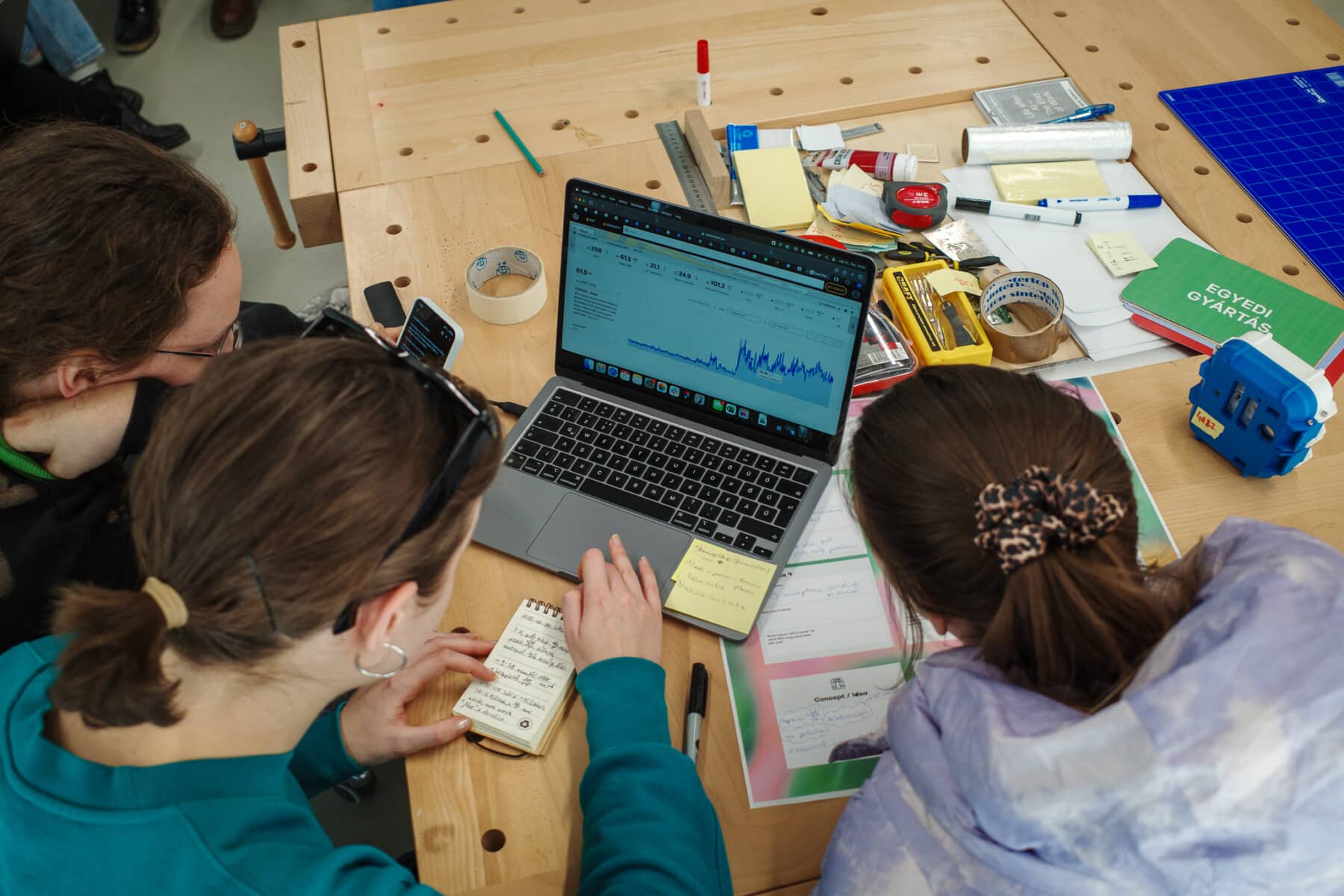
Data for Good: A Design Challenge at MOME
A collaboration between the Distributed Design Platform and MOME around the Smart Citizen innitiative
A collaboration between Smart Citizen Kit, the Distributed Design Platform, and MOME
The Moholy-Nagy University of Art and Design (MOME) and the Distributed Design Platform have established a meaningful partnership to host the Data for Good design challenge in Budapest. After months of planning, the collaboration culminated in February 2025 with a one-week immersive design challenge. Students from five different bachelor’s and master’s programs gathered in the Digital Object Making course room at MOME, kicking off their first week back at school by exploring new and emerging topics in environmental data and design.
Exploring Data for Creative Action
The challenge posed a fundamental question: “How can we utilize data to co-develop creative interventions that address local and global environmental challenges?” To answer this, the Distributed Design Platform collaborated with Smart Citizen, a project led by Fab Lab Barcelona that develops open-source hardware and software tools for environmental monitoring.
Throughout the week, students followed an immersive learning program, exploring Distributed Design principles, the fundamentals of environmental monitoring with the Smart Citizen Kit, and ideating and prototyping potential project concepts.
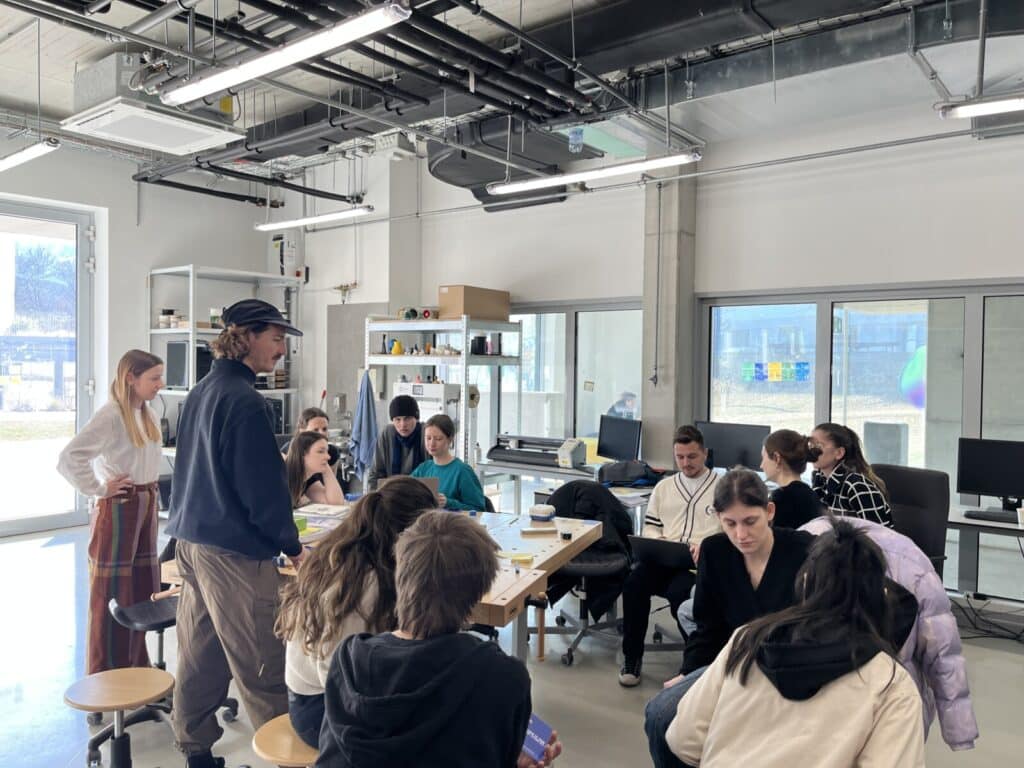
© Antoine Jaunard
Process Over Outcome
The challenge was designed to prioritize learning—both individually and collectively—rather than focusing solely on delivering finished products under time constraints. By emphasizing process over outcome, students had the space to ask meaningful and critical questions: What are the most pressing environmental challenges in Budapest? Where is air quality good or bad? What causes these variations, and who is most affected?
For the first two days, students left the classroom and engaged with the real world. Using Smart Citizen Kits, they collected environmental data across different locations—on campus, in nearby forests, and in the city center. They also recorded qualitative observations using their own senses, documenting their physical perceptions of air quality and environmental conditions.
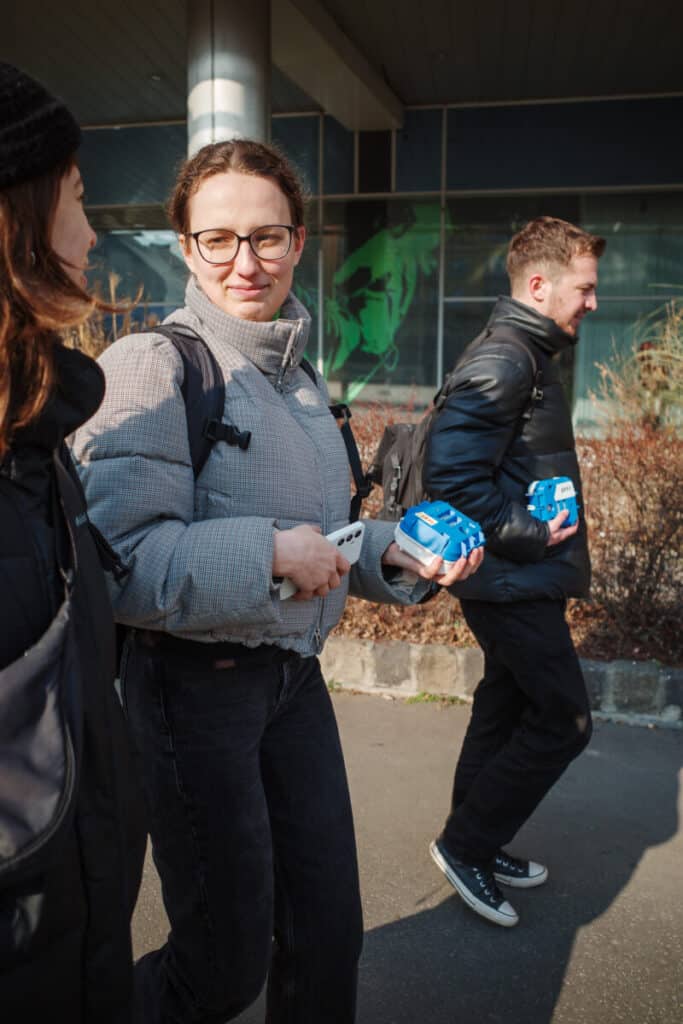
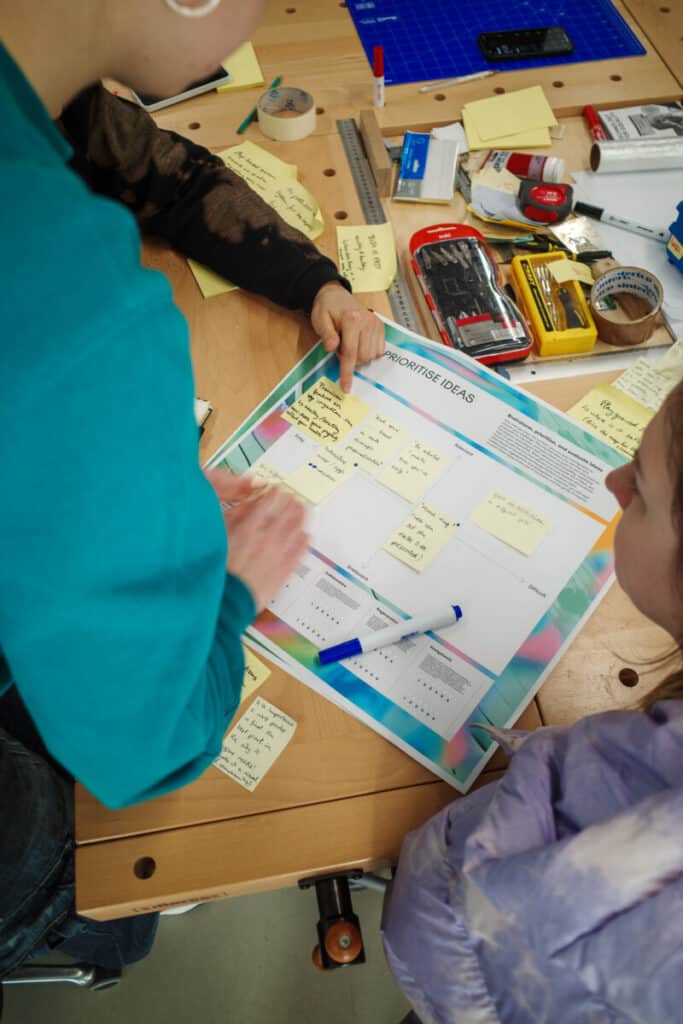
© Antoine Jaunard
Back in the classroom, students compared their sensor data with their bodily observations, analyzing correlations between digital and human-experienced environmental indicators. Through an iterative process, three project groups identified key challenges and designed creative interventions to address them. During three days they ideated, prototyped their interventions to finally present them at the end of the week.
Design Dialogues: A Playful Approach to Collaboration
Inspired by the Master in Design for Emergent Futures (MDEF) at Fab Lab Barcelona, the Data for Good Design Challenge adopted the Design Dialogues format—an alternative to traditional, formal presentations. Unlike conventional one-directional presentations, Design Dialogues invite interaction and collaboration. Students set up project stations displaying their work-in-progress using various media—posters, mockups, drawings, digital screens, and prototypes. Visitors move freely between stations, engaging in discussions with the project groups, much like at an exhibition. This format allows students to present their projects multiple times, refining their communication skills and gaining more meaningful feedback than they would in a single formal presentation.
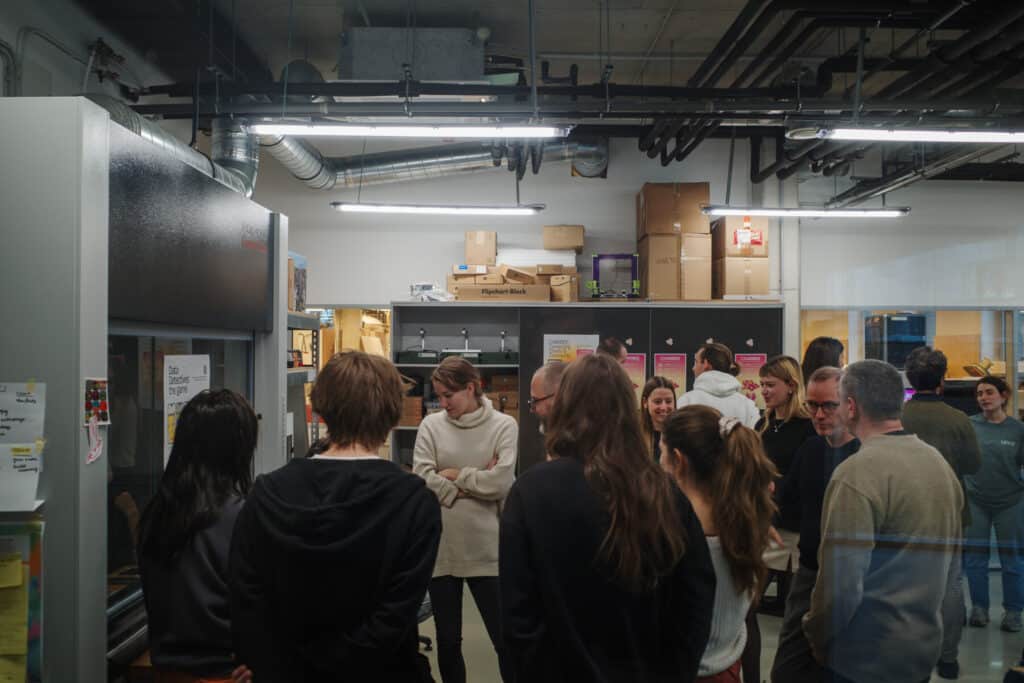
© Antoine Jaunard
Three Projects Exploring Environmental Data Through Distributed Design
Each project leveraged Distributed Design principles to address environmental issues through the lens of Smart Citizen data.
1. Lume (By Brigitta Burkus, Kitana Kovács, Luca Sára Kiss, Szabolcs Fábián)
Lume is a speculative design project addressing air pollution. At its core is a ring that changes color based on air quality data collected through Smart Citizen Kits.
The project envisions a future where Smart Citizen Kits are embedded in urban environments, enabling real-time, community-driven environmental monitoring. Ring wearers become part of a collective movement, using the visual data feedback as both an informative tool and a symbol of climate activism.
2. Data Game (By Amália Gerstenkorn, Bori Füge, Lajos Czeglédi, Réka Varga)
Data Game is a playful mobile app designed to build environmental awareness among children and young adults.
The game presents real environmental data alongside geo-tagged images, challenging players to match the correct image with the given data. Through progressive levels, players learn about air quality indicators such as particulate matter (PM), CO₂ levels, humidity, and air pressure—helping them understand the interconnections between different environmental factors.
3. Charibee (By Keceli-Mészáros Emese, Keresztes Mór, Majsai László Bence, Manukyan Tsovinar)
Charibee is an interactive public installation that connects data from charities to the public, making pressing social and environmental issues more visible and actionable.
The installation translates data into an engaging format, helping citizens understand how they can support local initiatives. By making information on charitable causes more accessible and tangible, Charibee encourages community participation and social impact activism.
Final Thoughts
The Data for Good challenge successfully merged environmental monitoring, data analysis, and creative intervention, demonstrating the power of Distributed Design in tackling real-world challenges. By emphasizing learning over output, using playful presentation formats, and fostering interdisciplinary collaboration, the program empowered students to explore meaningful and actionable ideas for environmental protection.
The Data for Good challenge was made possible thanks to the collaboration between MOME, the Distributed Design Platform, Smart Citizen and course co-facilitator Antoine Jaunard.
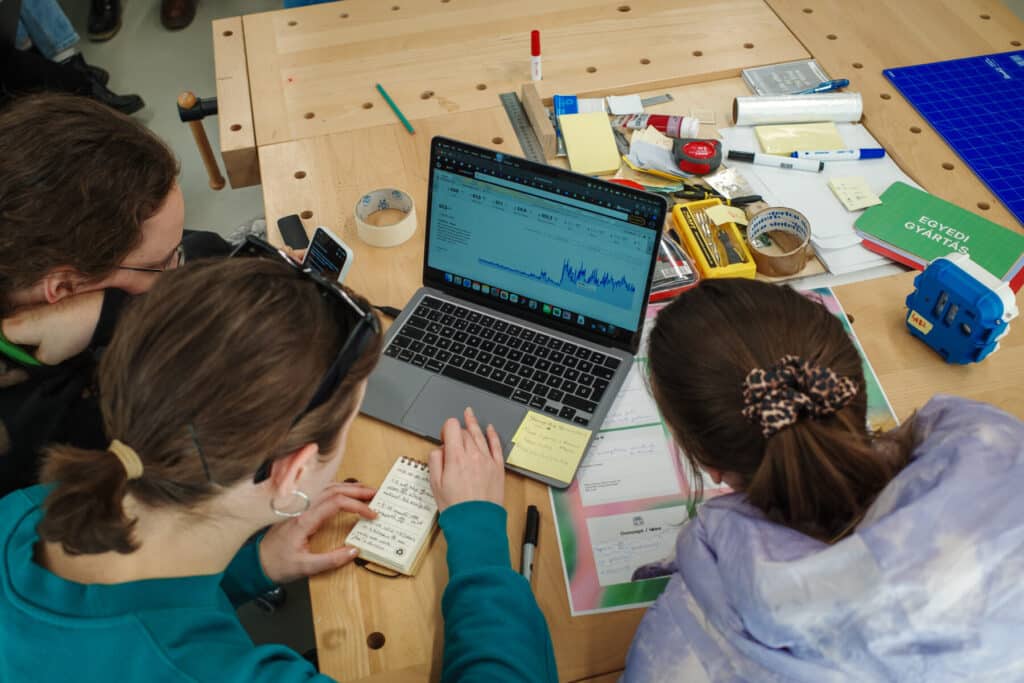
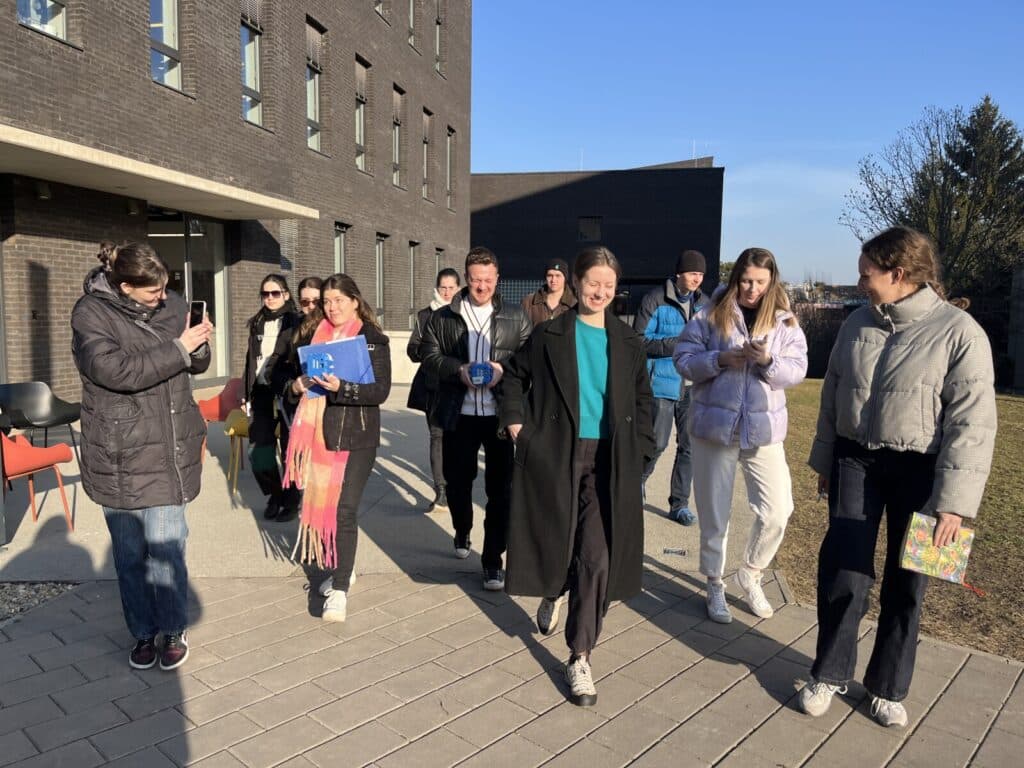
© Antoine Jaunard